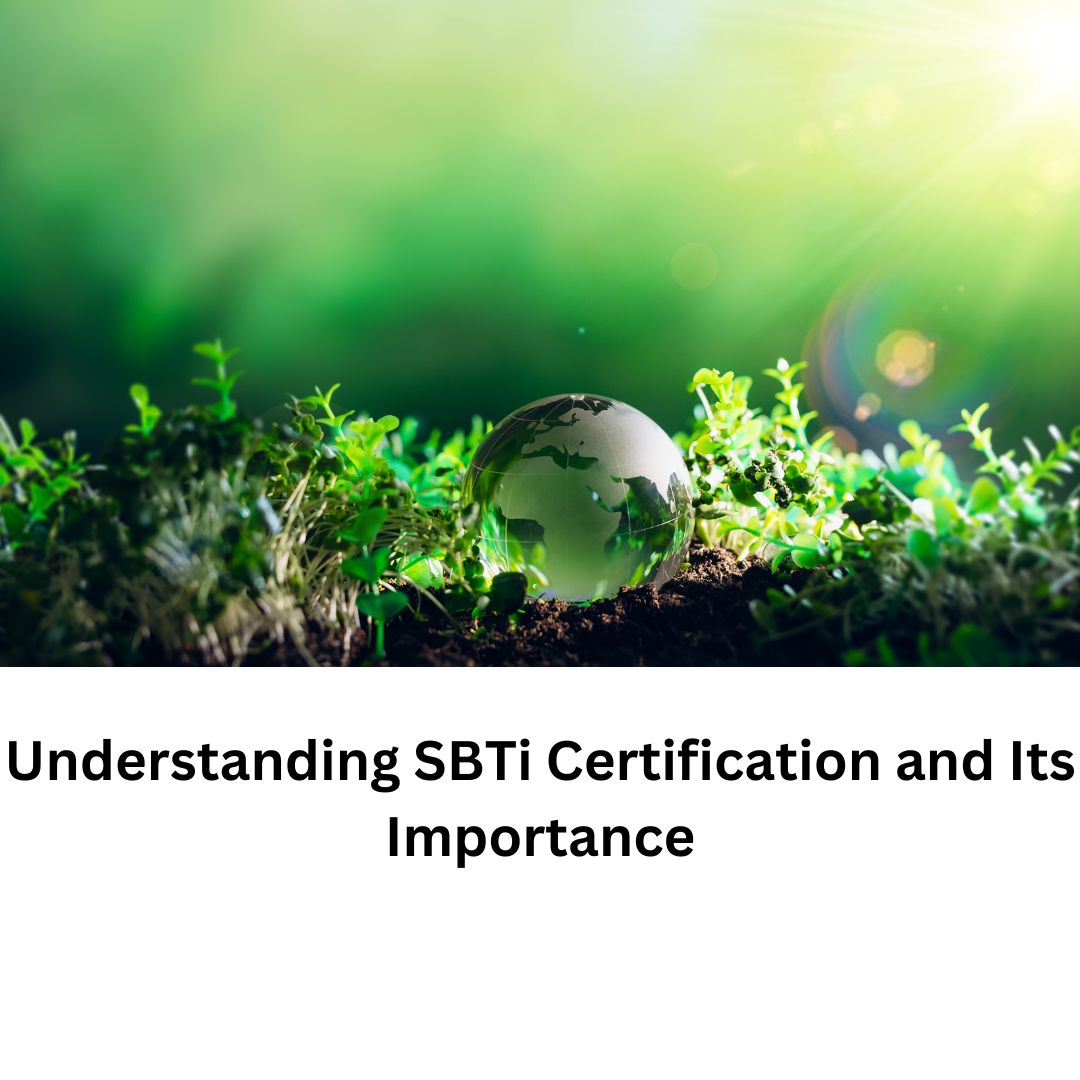Blog Details

Understanding SBTi Certification and Its Importance
Companies and financial institutions around the world may contribute to the fight against climate change through the Science Based Targets initiative (SBTi), a corporate climate action group. We create guidelines, methods, and standards that enable businesses to set goals for reducing greenhouse gas (GHG) emissions in accordance with what is required to keep global warming below catastrophic levels and achieve net-zero emissions by 2050 at the latest.
See companies doing bold climate initiatives.
When it comes to decarbonization, companies that set science-based goals show how ambitious they can be. Through the Science-Based Targets program (SBTi), more than 7,000 companies from a range of industries and geographical areas have established emissions reduction goals based on climate science.
What is SBTi?
A global program called the Science-Based Targets initiative (SBTi) assists companies in establishing science-based climate targets that are in line with the most recent climate research in order to lower greenhouse gas (GHG) emissions and support the objectives of the Paris Agreement. Setting specific, quantifiable goals that correspond with the required steps to keep the increase in global temperature to 1.5°C is a requirement for SBTi accreditation.
Achieving SBTi certification is a potent way for businesses looking to show their dedication to sustainability to exhibit their leadership and environmental responsibility. You can help the worldwide effort to reduce carbon footprints and prevent climate change by coordinating your business activities with these science-based targets.
Additionally, a company's credibility with investors, clients, and regulatory agencies is increased with SBTi accreditation. It denotes a proactive approach to sustainability, assisting companies in staying ahead of changing market demands and environmental restrictions. Additionally, via resource management and energy optimization, businesses with science-based goals frequently see increases in operational efficiency and cost savings.
SBTi Certification: Key Aspects
- → Science-Aligned Targets: Goals are based on the latest climate science and aligned with the 1.5°C target.
- → Third-Party Validation: SBTi assesses and approves targets to ensure scientific rigor and credibility.
- → GHG Emissions Reduction: Encourages comprehensive emissions reductions across Scope 1, 2, and where applicable, Scope 3.
- → Alignment with the Paris Agreement: Supports global efforts to limit temperature rise and reach net-zero by 2050.
- → Transparency: Requires public disclosure of targets and annual progress updates.
Benefits of SBTi Certification
- → ✅ Strengthens Brand Reputation: Demonstrates serious commitment to climate action and sustainability.
- → ✅ Attracts Investors and Clients: Aligns your business with ESG criteria valued by responsible stakeholders.
- → ✅ Regulatory Readiness: Prepares organizations for future emissions-related regulations and carbon taxes.
- → ✅ Operational Efficiency: Encourages optimization of energy use and carbon footprint, leading to cost savings.
- → ✅ Competitive Advantage: Sets you apart in markets increasingly driven by climate-conscious consumers.
SBTi Certification Process
- → Commitment: Submit a commitment letter to SBTi stating intent to set science-based targets.
- → Development: Develop targets using SBTi methodologies and tools.
- → Submission: Submit targets to SBTi for official validation.
- → Validation: SBTi experts review and approve targets based on scientific criteria.
- → Disclosure: Publicly disclose approved targets and progress annually.
Why SBTi Matters Today
In today’s competitive market, customers and stakeholders are increasingly choosing organizations that prioritize sustainability. SBTi certification sets businesses apart, showing that they are committed to creating a greener future.
By adopting SBTi, companies contribute to global climate goals, reduce risks associated with carbon-intensive operations, and unlock long-term growth opportunities. It is more than certification—it is a step toward responsible business and a sustainable planet.
Leave a Comment
We would love to hear your thoughts! Please leave your comment below:
